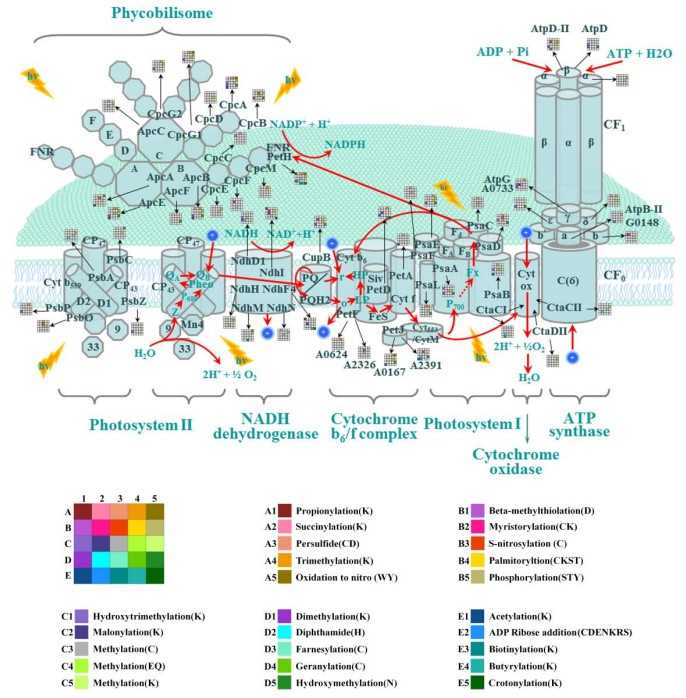Protein post-translational modifications (PTM) are covalent processing events that alter the properties of proteins through hydrolytic cleavage of proteins and the addition of modifying groups (e.g. acetyl, phosphoryl, glycosyl, and methyl) to one or more amino acids. PTM are dynamic cellular processes in different intercellular compartments and regulate other protein properties, including folding, conformation, and activity, thereby modulating protein function. There are over 400 different types of PTMs that affect many aspects of protein function. Microalgae are promising feedstocks for the production of renewable fuels and chemical intermediates. Although genomic and transcriptomic analyses provide strategies for engineering targeted strains in algal biocatalysts, active post-transcriptional regulatory mechanisms are prevalent in many microalgae. Therefore, proteomic and post-translational (e.g., phosphate and nitroso proteomics) analyses are needed to assess the algal response to nutrient deficiencies more fully.
 Fig 1. Working scheme of the holistic PTM events in photosynthesis pathways in cyanobacteria. (Xiong Q, et al., 2016)
Fig 1. Working scheme of the holistic PTM events in photosynthesis pathways in cyanobacteria. (Xiong Q, et al., 2016)
The PTM system is a critical component of the signal transduction network and has an important regulatory role. A large number of PTMs events have been reported in microalgae, and they are extensively involved in cellular processes and metabolic homeostasis. At Lifeasible, we provide specialized services for the analysis of post-translational modification of microalgal proteins, performing a systematic analysis of PTMs on isolated total algal proteins to comprehensively characterize protein species and elucidate the potential biological role of each protein in microalgae. Over the years, our skilled scientists have developed prokaryotic PTMs-wide proteome analysis strategies to analyze PTMs in microalgae, including:
We can help you to characterize microalgal protein species comprehensively and elucidate the potential biological roles of each protein species in microalgae. If you are interested in our solutions for analyzing post-translational modification of microalgal proteins, please contact us directly.
Reference
Lifeasible has established a one-stop service platform for plants. In addition to obtaining customized solutions for plant genetic engineering, customers can also conduct follow-up analysis and research on plants through our analysis platform. The analytical services we provide include but are not limited to the following:
Why Do Plants Blush When They Are Hungry?
April 26, 2024
STU-CRISPR System Improves Plant Genome Editing Efficiency
April 19, 2024